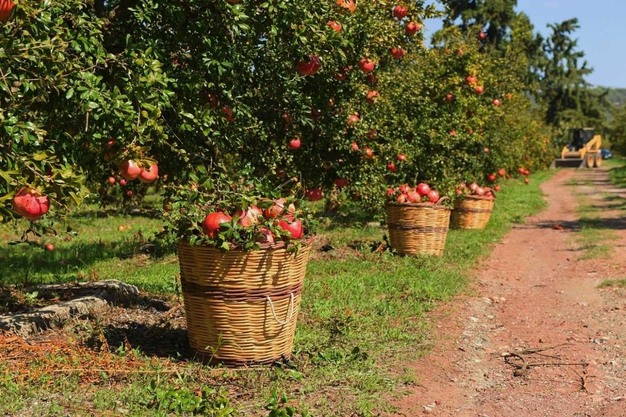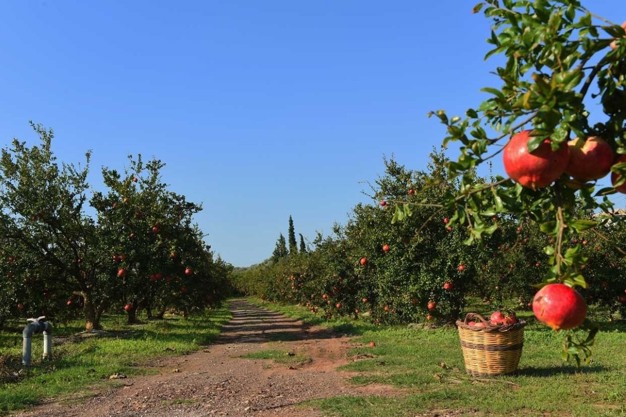This season hasn't been a good one for the Greek PDO 'Ermioni' pomegranates, with harvesting expected to finish around November 25. Mr. Dimitris Kontos, owner of the growing and packing company Oikokipos from the Ermioni area, states: "Due to the drought of the past months, pomegranate trees have yielded limited volume. It seems that this season, the entire area of Ermioni in Argolida will not exceed 2,000 tons. This is 20-30% less than last season."
Additionally, the fruit sizes are smaller, also due to the drought. "Normally, we get fruits of about 350 grams. This year, we see fruits of less than 300 grams coming out of our sorting machine," says the Greek packer.

The drop in production makes it difficult for the merchants to supply sufficient volumes to their customers, but this has not been led to price increases. Mr. Kontos, whose pomegranates are exported to Switzerland and Czech Republic, notes: "We see quite good demand, but the fruit supply is insufficient. Unfortunately, the quality is also not at its best and this has repercussions for the price levels. Normally, Ermioni pomegranates are known for their large, smooth arils. This season, the interior quality has deteriorated due to the drought, keeping grower price at a lower level."
"Currently, the grower price for first-quality conventional Ermioni fruits stands at 0,60-0,70 euros per kilogram. Other conventional pomegranates gain lower prices, while organic Ermioni pomegranates get higher prices," says Mr. Kontos.

The affected quality makes the rest of the season challenging and it seems that packers may have to make risky decisions concerning their stock management. "Usually, Ermioni pomegranates are available until the end of January, but this time I'm not sure if this can be achieved without putting the fruits at risk. In contrast to Wonderful pomegranates, who have hard arils, but also a tough skin, Ermioni's delicate skin makes extended storage a difficult task. This becomes even more difficult with the context of this season's quality," Mr. Kontos points out.
"However, there will certainly be packers who attempt to save some fruit to secure premium prices at the end of the season, but their volumes will be limited, and they know they are taking a risk with their stocks," the Greek entrepreneur concludes.
For more information:
Dimitris Kontos
Oikokipos
Mob.: +30 6936 181 755
Email: [email protected]
https://oikokipos.com/
